15 Best Science Fiction Novels
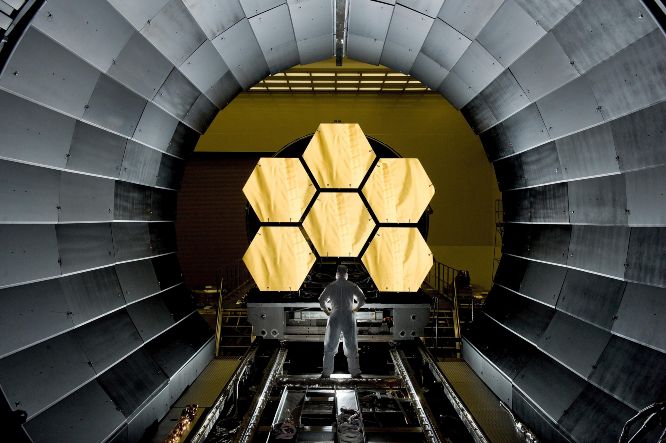 best scifi cover
best scifi cover
From the golden age of Sci Fi, here’s our picks for 15 of the Best Science Fiction Novels. For this Reading List we have concentrated on Classic Sci-Fi Books. Enjoy!
This post may contain affiliate links that earn us a commission at no extra cost to you.
1. Foundation by Isaac Asimov
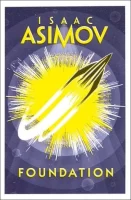
Foundation is a science fiction novel by American writer Isaac Asimov. It is the first published in his Foundation Trilogy (later expanded into the Foundation series). Foundation is a cycle of five interrelated short stories, first published as a single book by Gnome Press in 1951. Collectively they tell the early story of the Foundation, an institute founded by psychohistorian Hari Seldon to preserve the best of galactic civilization after the collapse of the Galactic Empire.
2. Neuromancer by William Gibson
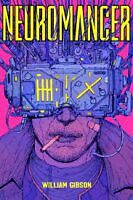
Although it was published almost 40 years ago it still feels fresh today. Considered one of the earliest and best-known works in the cyberpunk genre, it is the only novel to win the Nebula Award, the Philip K. Dick Award, and the Hugo Award. It was Gibson’s debut novel and the beginning of the Sprawl trilogy. Set in the future, the novel follows Henry Case, a washed-up hacker hired for one last job, which brings him in contact with a powerful artificial intelligence.
3. Do Androids Dream of Electric Sheep? by Philip K. Dick
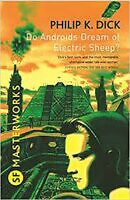
Do Androids Dream of Electric Sheep? is a 1968 science fiction novel by Philip K. Dick. It tells of the moral crisis of Rick Deckard, a bounty hunter who stalks almost-human androids in a nuclear fallout-clouded, partially deserted future San Francisco.
Although Blade Runner was loosely based this book, it is in fact a different story, it was more an inspiration than an adaptation.
4. The Time Machine by H.G Wells
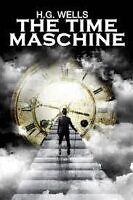
The Time Machine is a post-apocalyptic science fiction novella by H. G. Wells, published in 1895. The work is generally credited with the popularization of the concept of time travel by using a vehicle or device to travel purposely and selectively forward or backward through time. The term “time machine”, coined by Wells, is now almost universally used to refer to such a vehicle or device.
In the story a British inventor creates a time machine that sends him far into the future, A.D. 802,701, where subterranean Morlocks prey on the childlike Eloi.
The Time Machine is a warning that things don’t always get better as time goes on; they just change.
5. Dune by Frank Herbert
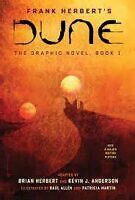
Dune is a science fiction novel written by Frank Herbert and published in 1965. A winner of the Hugo Award and Nebula Award for outstanding science fiction, Dune is popularly considered one of the greatest science fiction novels of all time, and is frequently cited as the best-selling science fiction novel in history. Dune spawned five sequels written by Herbert and later his son, which got progressively less interesting as the series progressed
Dune is set far in the future, amidst a sprawling feudal intergalactic empire, where planetary fiefdoms are controlled by Noble Houses that owe allegiance to the Imperial Houses. The novel tells the story of young Paul Atreides, heir apparent to the Duke of House Atreides, as he and his family relocate to the planet Arrakis, the universe’s only source of the spice melange.
6. The Moon is a Harsh Mistress by Robert A Heinlein
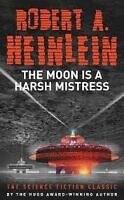
Widely acknowledged as one of Robert A. Heinlein’s greatest works, The Moon Is a Harsh Mistress rose from the golden age of science fiction to become an undisputed classic. A revolution on a lunar penal colony—aided by a self-aware supercomputer—provides the framework for a story of a diverse group of men and women grappling with the ever-changing definitions of humanity, technology, and free will—themes that resonate just as strongly today as they did when the novel was first published in 1966.
7. The Lathe of Heaven by Ursula K. Le Guin
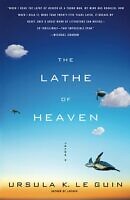
The Lathe of Heaven is a science fiction novel by legendary author Ursula K. Le Guin, set in a world where one man’s dreams rewrite the future.
During a time racked by war and environmental catastrophe, George Orr discovers his dreams alter reality. George is compelled to receive treatment from Dr. William Haber, an ambitious sleep psychiatrist who quickly grasps the immense power George holds. After becoming adept at manipulating George’s dreams to reshape the world, Haber seeks the same power for himself. George, with some surprising help, must resist Haber’s attempts, which threaten to destroy reality itself.
8. 2001: A Space Odyssey by Arthur C. Clarke
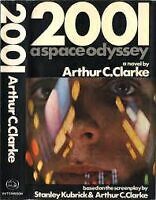
The classic science fiction novel that captures and expands on the vision of Stanley Kubrick’s immortal film–and changed the way we look at the stars and ourselves . From the savannas of Africa at the dawn of mankind to the rings of Saturn as man ventures to the outer rim of our solar system, 2001: A Space Odyssey is a journey unlike any other.
This allegory about humanity’s exploration of the universe–and the universe’s reaction to humanity–is a hallmark achievement in storytelling that follows the crew of the spacecraft Discovery as they embark on a mission to Saturn. Their vessel is controlled by HAL 9000, an artificially intelligent supercomputer capable of the highest level of cognitive functioning that rivals–and perhaps threatens–the human mind. Grappling with space exploration, the perils of technology, and the limits of human power, 2001: A Space Odyssey continues to be an enduring classic of cinematic scope.
9. The Demolished Man by Alfred Bester
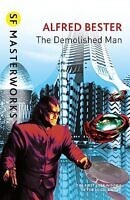
In the year 2301, guns are only museum pieces and benign telepaths sweep the minds of the populace to detect crimes before they happen. In 2301 murder is virtually impossible, but one man is about to change that…
Ben Reich, a psychopathic business magnate, has devised the ultimate scheme to eliminate the competition and destroy the order of his society. The Demolished Man is a masterpiece of imaginative suspense, set in a superbly imagined world in which everything has changed except the ancient instinct for murder.
10. Ender’s Game by Orson Scott Card
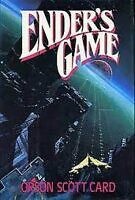
Published in 1985, the novel tells the story of a young boy, Ender Wiggin, who is sent to a training academy named Battle School, located in orbit above the Earth, built to train people to become soldiers that will one day battle against a vast alien race known as “Buggers”.
11. The Hitchhiker’s Guide to the Galaxy by Douglas Adams
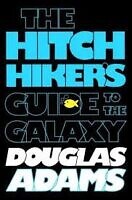
One Thursday lunchtime the Earth gets unexpectedly demolished to make way for a new hyperspace bypass. It’s the final straw for Arthur Dent, who has already had his house bulldozed that morning. But for Arthur, that is only the beginning . . . In the seconds before global obliteration, Arthur is plucked from the planet by his friend Ford Prefect – and together the pair venture out across the galaxy on the craziest, strangest road trip of all time! Totally hilarious, The Hitchhiker’s Guide to the Galaxy has been a radio show, TV show, stage play, comic book and film, and is a work of utter comic genius from Douglas Adams.
12. The Martian Chronicles by Ray Bradbury
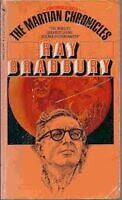
In The Martian Chronicles, Ray Bradbury, imagines a place of hope, dreams, and metaphor— of crystal pillars and fossil seas—where a fine dust settles on the great empty cities of a vanished, devastated civilization. Earthmen conquer Mars and then are conquered by it, lulled by dangerous lies of comfort and familiarity, and enchanted by the lingering glamour of an ancient, mysterious native race. In this classic work of fiction, Bradbury exposes our ambitions, weaknesses, and ignorance in a strange and breathtaking world where man does not belong.
13. We by Yevgeny Zamyatin
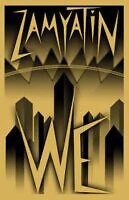
Yevgeny Zamyatin’s page-turning science fiction adventure, a masterpiece of wit and black humor that accurately predicted the horrors of Stalinism, We is the classic dystopian novel that became the basis for the tales of Aldous Huxley, George Orwell, and Margaret Atwood, among so many others. Its message of hope and warning is as timely at the beginning of the twenty-first century as it was at the beginning of the twentieth.
In the One State of the great Benefactor, there are no individuals, only numbers. Life is an ongoing process of mathematical precision, a perfectly balanced equation. Primitive passions and instincts have been subdued. Even nature has been defeated, banished behind the Green Wall. But one frontier remains: outer space. Now, with the creation of the spaceship Integral, that frontier — and whatever alien species are to be found there — will be subjugated to the beneficent yoke of reason.
14. The Forever War by Joe Haldeman
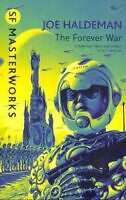
Private William Mandella is a reluctant hero in an interstellar war against an unknowable and unconquerable alien enemy.
But his greatest test will be when he returns home.
Relativity means that for every few months’ tour of duty centuries have passed on Earth, isolating the combatants ever more from the world for whose future they are fighting.
The Earth he knew is dead. The one he returns to . . . unrecognisable.
15. Gateway by Frederick Pohl
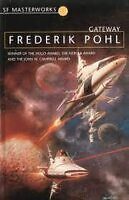
Wealth … or death. Those were the choices Gateway offered. Humans had discovered this artificial spaceport, full of working interstellar ships left behind by the mysterious, vanished Heechee.
Their destinations are preprogrammed. They are easy to operate, but impossible to control. Some came back with discoveries which made their intrepid pilots rich; others returned with their remains barely identifiable. It was the ultimate game of Russian roulette, but in this resource-starved future there was no shortage of desperate volunteers.
If you enjoyed our Reading list for the Best Classic Sci Fi Books, give our fun Science Fiction Book Quiz a try and test your Sci-Fi chops!
One thought on “15 Best Science Fiction Novels”
Comments are closed.

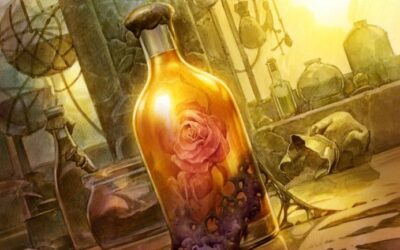






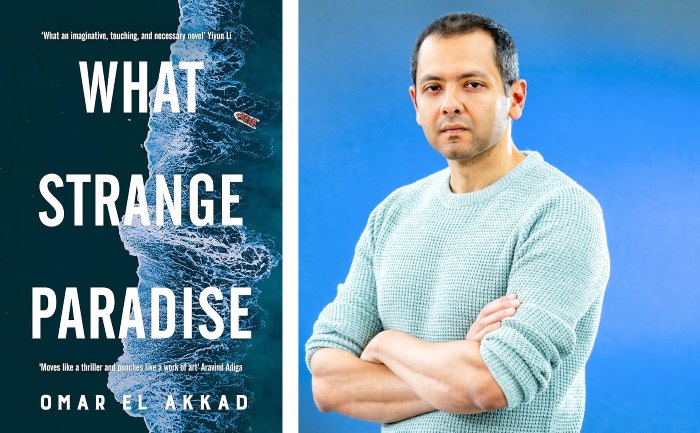
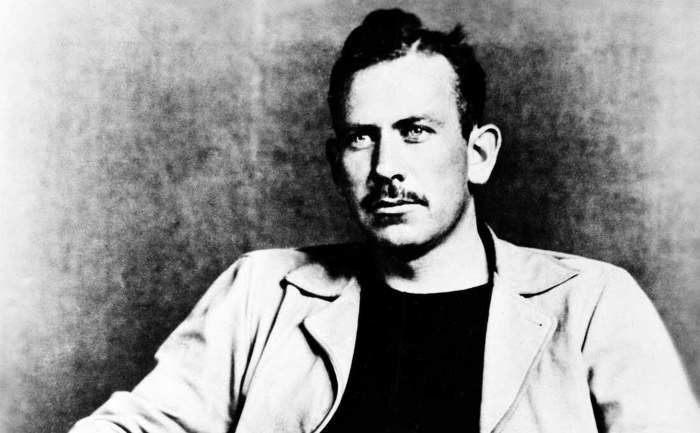

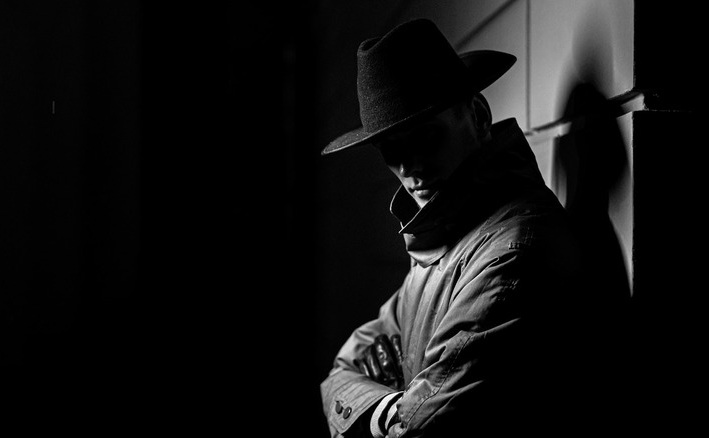
Great write up.. Keep writing